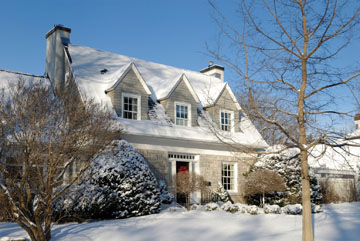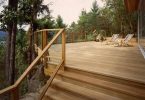 (NC)—While some of the shortcomings of a home will not be evident under snow coverage, winter also presents an opportunity to see other things that snow can teach us about the condition of a house. For example, a snow-covered roof may hide the overall state of the shingles and underlay, yet large spotty patches of melted snow on a roof and dripping icicles are indicators of insulation deficiency. Likewise, snow piled on the outside of a home can show tell-tale signs inside the home, revealing foundation cracks and basement leakage problems.
(NC)—While some of the shortcomings of a home will not be evident under snow coverage, winter also presents an opportunity to see other things that snow can teach us about the condition of a house. For example, a snow-covered roof may hide the overall state of the shingles and underlay, yet large spotty patches of melted snow on a roof and dripping icicles are indicators of insulation deficiency. Likewise, snow piled on the outside of a home can show tell-tale signs inside the home, revealing foundation cracks and basement leakage problems.
While every season teaches us something about the condition of a home, cold weather and snow may prevent a home inspector from determining certain aspects, such as the grade of the land, and if rain and moisture drains away from, or toward, the house. In rural areas, testing the health of a septic system is a task much better task left for warmer weather. Also, it is not feasible to test the state of an air conditioning system during cold weather.
In order to protect yourself from possible future expenses as a result of a winter inspection that cannot uncover certain conditions, it is advisable to speak to your real estate agent about working into your contractual agreements provisions for compensation or replacement, should it become necessary.
Additional information about real estate purchases and protection is available online at www.royallepage.ca.
www.newscanada.com
Latest posts by Canadian Home Trends (see all)
- Understanding The Importance of Great Design - February 21, 2026
- The Green Effect: To Clean or Not to Clean - February 21, 2026
- Functional Warm Addition - February 21, 2026






